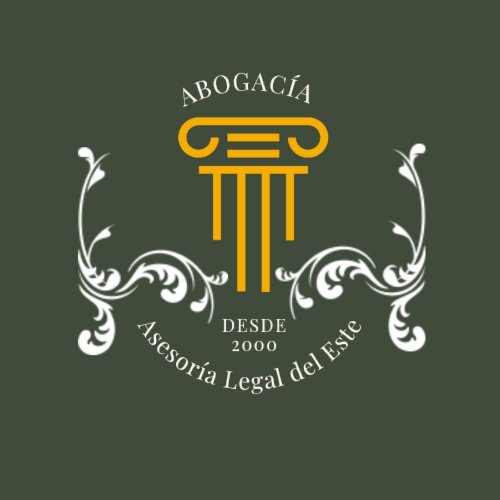Best Faith-Based Law Lawyers in Paraguay
Share your needs with us, get contacted by law firms.
Free. Takes 2 min.
Or refine your search by selecting a city:
List of the best lawyers in Paraguay
About Faith-Based Law in Paraguay
Faith-Based Law in Paraguay predominantly revolves around the interactions between civil law and religious principles as practiced by groups within the country. Paraguay, with its diverse religious landscape, allows certain faith-based practices to exist within the boundaries of its legal framework. This integration works to acknowledge the significant role of religion in Paraguyan society while ensuring adherence to national laws. Faith-Based Law often involves matters of religious rights, marriage, education, and religious property, ensuring these practices align with constitutional mandates.
Why You May Need a Lawyer
There are several situations where a legal expert in Faith-Based Law might be necessary:
- Interpreting religious rights under Paraguayan law, especially in cases of employment or discrimination.
- Handling disputes related to religious property or assets.
- Assistance with marriage or divorce proceedings that involve religious considerations.
- Legal guidance on setting up faith-based educational institutions compliant with national educational standards.
- Navigating conflicts between church regulations and state laws.
Local Laws Overview
Key aspects of Paraguay's local laws relevant to Faith-Based Law include:
- Freedom of Religion: The Paraguayan Constitution guarantees freedom of religion, allowing individuals and communities to practice their faith freely, but within the bounds of public order and morality.
- Religious Organizations: These entities must be registered with the Ministry of Education and Culture to gain legal status, which provides them the rights and responsibilities similar to other legal entities.
- Religious Education: Religious instruction is permitted in private schools, while public schools maintain secular education unless otherwise legislated.
- Marriage and Family Law: Marriages can be celebrated according to religious rites, but they must also comply with civil recording requirements to be legally recognized.
Frequently Asked Questions
Can religious practices override national laws in Paraguay?
No, while religious freedom is protected, all practices must comply with national laws to maintain public order.
Are there particular laws governing religious institutions?
Yes, religious institutions must register as legal entities and follow the regulations outlined by the Ministry of Education and Culture.
How does Paraguay handle religious education in schools?
Public schools do not include religious education, while private schools may offer it according to their founding principles.
Is it necessary to register a religious marriage with civil authorities?
Yes, for a religious marriage to be legally recognized, it must also be registered with the civil authorities.
What rights do religious workers have in Paraguay?
Religious workers are subject to the same employment laws as other workers, including protections under labor laws.
How are disputes involving religious property resolved?
Disputes are resolved according to both civil property laws and any applicable agreements governed by the religious institution’s bylaws.
Can a religious school refuse students based on faith?
Yes, a religious school may have admission policies aligned with its faith-based ethos, but they must also comply with national anti-discrimination laws.
What is required to establish a faith-based organization legally?
Faith-based organizations must register with the Ministry of Education and Culture and comply with regulations for legal entities.
Are donations to religious organizations tax-deductible?
This depends on current tax laws and if the organization is recognized as a public interest group.
Can employees be required to follow religious protocols at work?
This depends on the nature of the organization; religious organizations may have specific requirements for their employees.
Additional Resources
For assistance with Faith-Based Law, consider reaching out to these resources:
- Ministry of Education and Culture: Oversees religious organization registration and affairs.
- Human Rights Organizations: Provide resources on religious freedom and rights.
- Legal Aid Clinics: Offer pro bono services or guidance on faith-related legal issues.
- Faith-Based Legal Associations: Can offer specialized legal advice on related matters.
Next Steps
If you need legal assistance in Faith-Based Law:
- Identify your specific legal issue or question thoroughly.
- Consult with a lawyer experienced in Faith-Based Law to discuss your situation.
- Gather all relevant documents and information to facilitate the legal consultation process.
- Follow the legal advice carefully, ensuring all actions are compliant with both religious and civil law.
Lawzana helps you find the best lawyers and law firms in Paraguay through a curated and pre-screened list of qualified legal professionals. Our platform offers rankings and detailed profiles of attorneys and law firms, allowing you to compare based on practice areas, including Faith-Based Law, experience, and client feedback.
Each profile includes a description of the firm's areas of practice, client reviews, team members and partners, year of establishment, spoken languages, office locations, contact information, social media presence, and any published articles or resources. Most firms on our platform speak English and are experienced in both local and international legal matters.
Get a quote from top-rated law firms in Paraguay — quickly, securely, and without unnecessary hassle.
Disclaimer:
The information provided on this page is for general informational purposes only and does not constitute legal advice. While we strive to ensure the accuracy and relevance of the content, legal information may change over time, and interpretations of the law can vary. You should always consult with a qualified legal professional for advice specific to your situation.
We disclaim all liability for actions taken or not taken based on the content of this page. If you believe any information is incorrect or outdated, please contact us, and we will review and update it where appropriate.
Browse faith-based law law firms by city in Paraguay
Refine your search by selecting a city.












